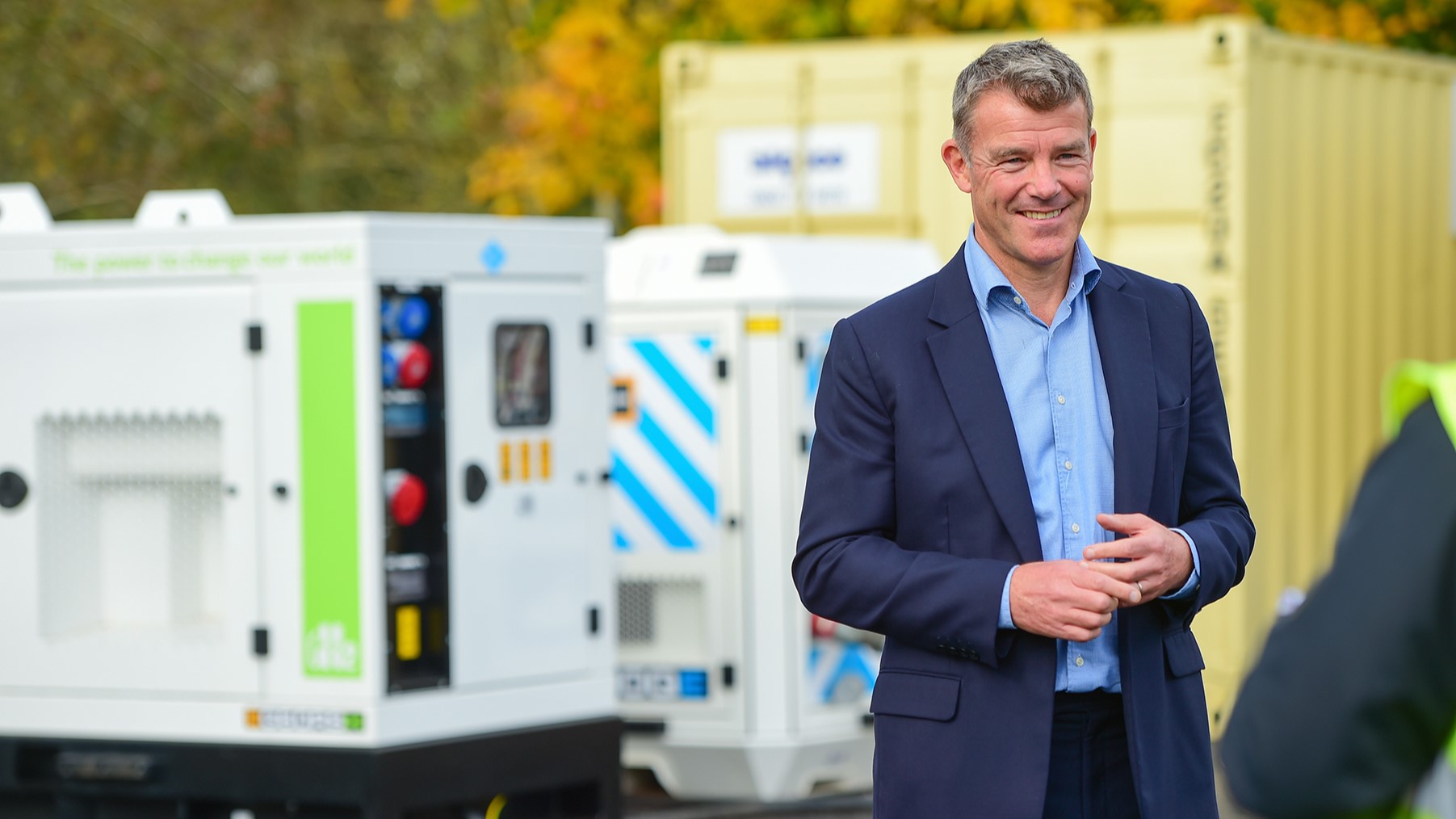
Wates believes hydrogen will be a major contributor to its carbon reduction plans after trialling a JCB generator powered by the fuel.
The contractor has been trialling a JCB hydrogen generator on a site near Wolverhampton.
Adam Cannon, project director at Wates, said: “One of the questions we get from customers is how can you make site set-up more energy efficient and more carbon neutral? We’ve been trying other fuels, but they’ve been a bit of a challenge.
“Hydrogen for me is the way forward. It is completely new thinking for power for our accommodation on site and it really reduces the burden from the statutory authority having to bring new cables and infrastructure to site. It will allow us to be standalone and to provide a carbon-neutral offering to our customers.”
Jonny Wates, director, added: “Zero-emission power on sites is a fundamental building block to get us to our ambition. We’re excited to partner with JCB on hydrogen, because it’s cleaner energy. Fundamentally, it’s about the emissions, the particulates and the noise that you associate with a diesel generator.
“We need to be changing quite rapidly, to adapt to what our customers want, to what our broader stakeholders want, but also to what we believe is our responsibility in addressing the challenges of climate change and biodiversity loss.”
Combustion technology
The JCB 60kVA hydrogen combustion generator, coupled with a 104kWh Powerpack battery storage unit, can operate on battery power alone, as a hybrid (using both battery and generator power), or hydrogen-powered only.
Chris Dempsey, managing director of energy solutions at supplier Sunbelt Rentals said: “Making it as simple as possible is key. Essentially, this is internal combustion technology, which is well known within the market. It’s quite easy for our customers to relate to that technology.”
Cannon added: “The fuel can be transported to site in the same way as diesel. It’s mobile, it’s quick to refuel and you’ve got your generator turned back on and functioning.”
Tim Burnhope, group director – special projects, at JCB commented: “The power generation sector is really important to JCB. In future, we’re going to need a lot more electricity and zero-carbon electricity.
“Having a generator that produces electricity using hydrogen is fundamental to that future. A tube trailer delivers the hydrogen to site. We park next to the generator, couple the tube trailer to the generator and then consume fuel as you would with any other system. We swap over with a fresh tank and continue to produce carbon-free electricity on site.”
JCB has invested more than £100m to produce a range of super-efficient hydrogen engines at its engine plant in Derbyshire. JCB has been operating prototype hydrogen-powered loadall telescopic handlers, backhoe loaders and generators on sites near Birmingham and is now testing a wider range of equipment in partnership with rental companies and leading contractors across the UK.
Comments
Comments are closed.












Sounds like a company that did their homework!